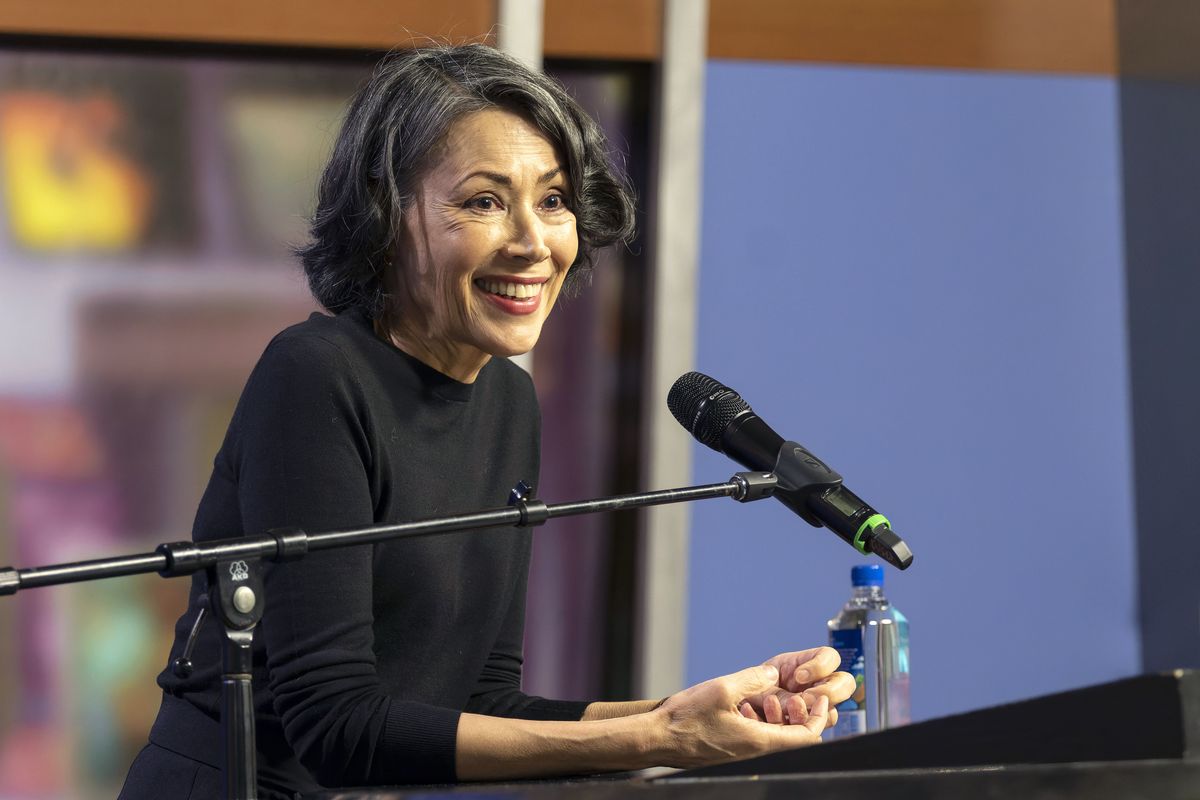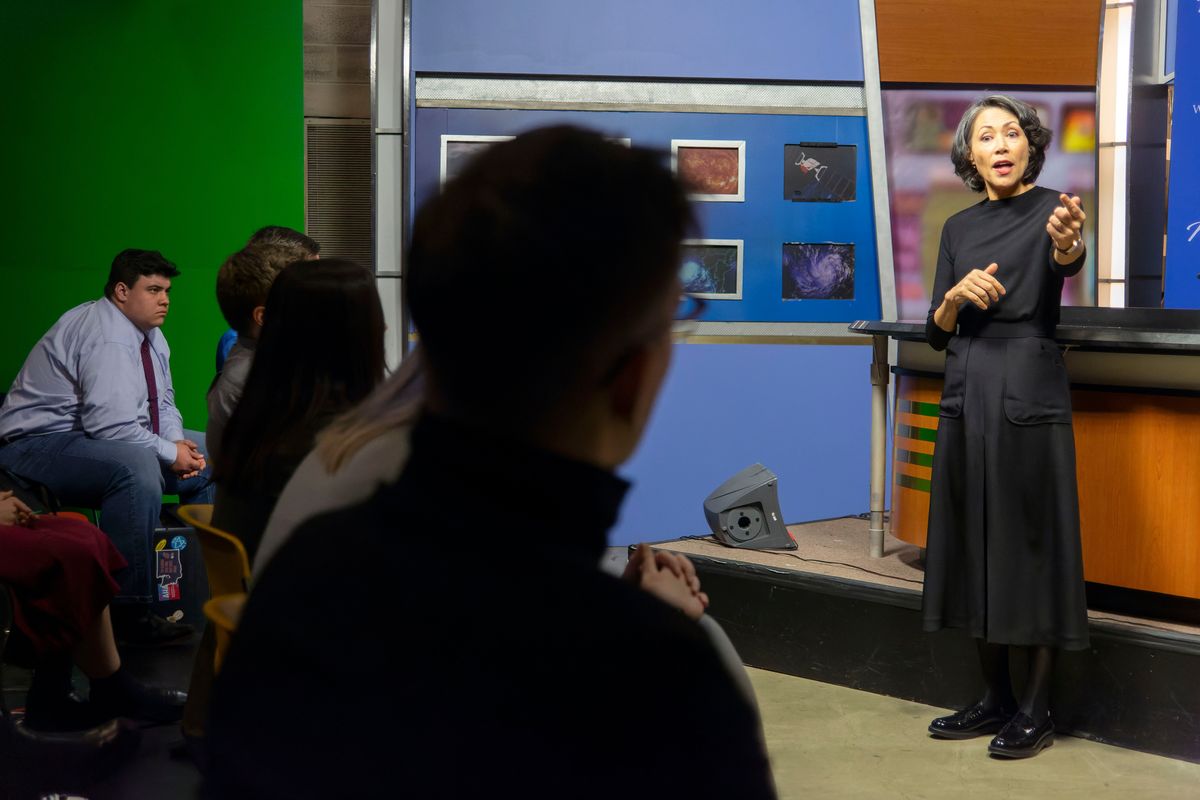Vanguard of women journalists Ann Curry to accept Murrow Lifetime Achievement Award at WSU

PULLMAN – Many newsrooms of the late 1970s and throughout the 1980s had never seen a journalist like Ann Curry.
The daughter of a Japanese woman and a Caucasian American sailor, she is regarded as among the first vanguard of women entering newsrooms. She spent more than 30 years in journalism and became known for her work as a national foreign correspondent reporting on humanitarian crises.
In honor of her work, Curry will be receiving the Edward R. Murrow Lifetime Achievement Award at 7 p.m. Tuesday as part of the 46th annual Murrow Symposium at Washington State University.
“I think that your generation of young, rising journalists, your generation is fully awake in a way that many generations in the past have not been to reasons why truth must be defended,” Curry said to students as she described her upbringing and career.

Raised in Ashland, Oregon, the former NBC News anchor and international correspondent is no stranger to the Pacific Northwest. Curry graduated from the University of Oregon in 1978, and started her broadcast career as an intern at KTVL in Medford, Oregon, where she quickly became the station’s first female reporter.
“When I came in, I was the only person who was not Caucasian,” Curry said. “I walked into a room full of all white men who really didn’t want me there and one of them said to me, ‘you know, you shouldn’t get this job because women have no news sense and you probably can’t carry the camera. So, just do yourself a favor and don’t take the job.’ ”
That same male co-worker ended up regretting his words, telling Curry that he hoped what he had said never stopped her from pursuing her dreams. As a young woman of color in a field that was not very diverse, she said she felt immense pressure to represent underserved groups and voices, forging the path for those behind her.
“It’s not fair really, but it’s the truth,” Curry said. “I could almost hear people coming up the hill behind me and I knew I had to make space, and I did. They hired more women and now there are as many, if not more, women than men and there are people who are not Caucasian.”
Curry went on to serve as an anchor and reporter at KGW in Portland, and KCBS-TV in Los Angeles, before joining NBC News in 1990. She spent 25 years at NBC News working as a foreign correspondent, an anchor and co-host for the Today show before her departure in 2015.
After over 30 years in the industry, she said she has seen the profession change quite a bit, but that the core values remain the same.
“I know many generations struggle to believe there is absolute truth,” Curry said. “But there is absolute truth and as reporters it is a struggle to get close to it. The goal is to practice, to get good enough to get as much of it in front of people as possible so they can make up their own minds.”
Curry said the news industry is in the middle of a deep transformation due to the technological revolution that has changed how the industry operates. She reflected on how she would load, shoot and edit her own film during her early career before most stations went digital.
“I think it’s forcing us awake on many levels, and wonderfully creating new opportunities and ideas,” Curry said. “The fundamentals of using verifiable facts, of attribution, information that’s unvarnished and trustworthy, all those fundamental things, are going to still be needed and wanted. But the way we do them, how we do that in this multiplatform manner, is the challenge and there’ll be ways that we don’t even realize yet.”
However, Curry pointed out that the effects of the technological revolution have not all been positive, as many news organizations have struggled to adapt. She said it’s led to a lot of stories going uncovered, especially on the local level, which she sees as a vital part of the news ecosystem.
“Communities need to have representatives, they need a source they can trust,” Curry said. “They’re not necessarily going to trust the Wall Street Journal or the New York Times or the Washington Post, but they’re going to trust the Ashland Daily Tidings because that’s their community, and they know that editor and they know those reporters.”
Much of Curry’s reporting over the years has brought her face to face with tragedy, as she’s filed stories from war zones in Lebanon, Afghanistan and The Democratic Republic of the Congo, in addition to her work from Ground Zero on 9/11 and Haiti following the 2010 earthquake. Although it can be difficult at times, she said her goal in life has always been to give a voice to those facing hardship that may go overlooked.
As the discussion came to a close, Curry touched on what she believes are the most vital parts of the job: serving others by amplifying underrepresented voices and informing others for the greater good.
“The job is not to tell people what to do, or to push them in one direction or another,” Curry said. “It’s to let their eyes awaken to each other; let them see each other for who they really are and what really matters. We should not be daunted by the fact that it’s a struggle to find the truth, it is a tremendous pleasure to bring light to hardship. If you want to live a meaningful life that uplifts humanity, be a journalist.”